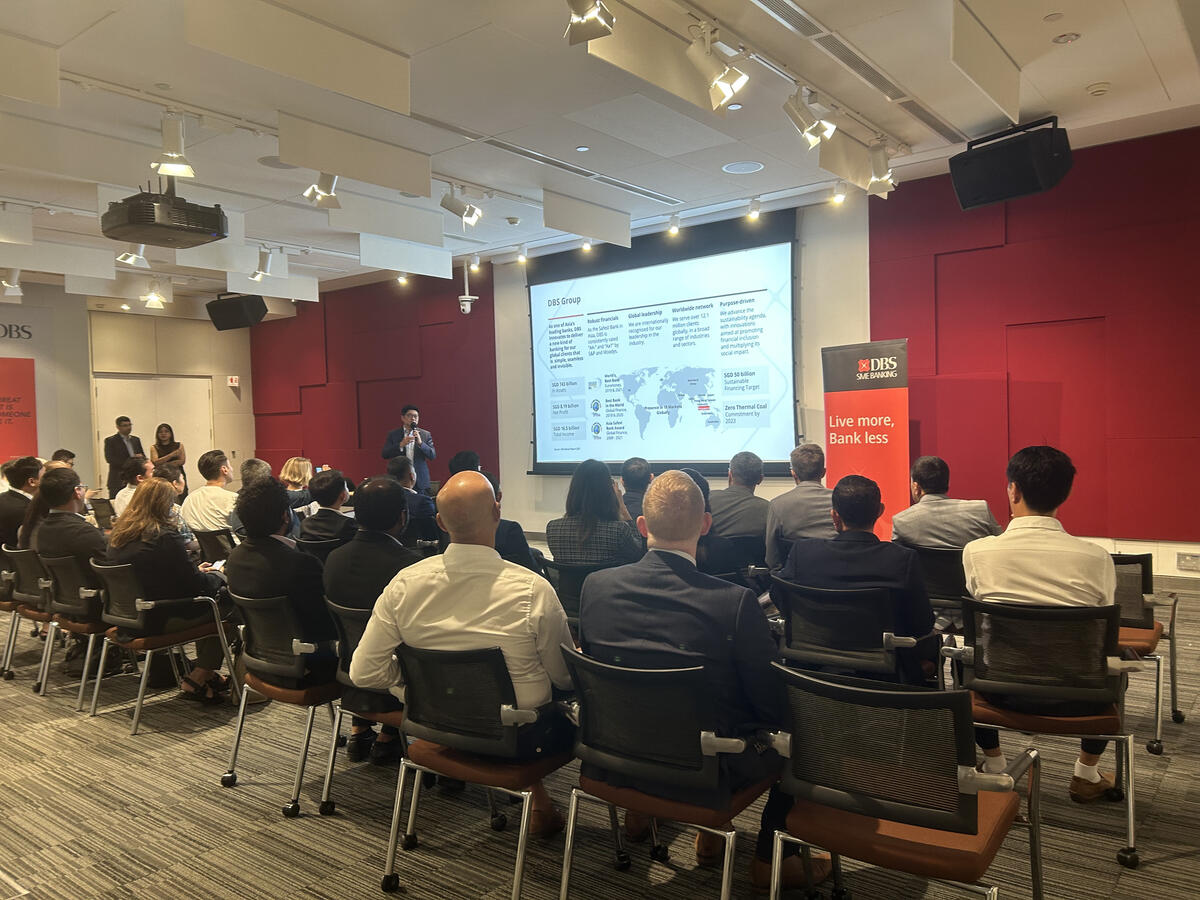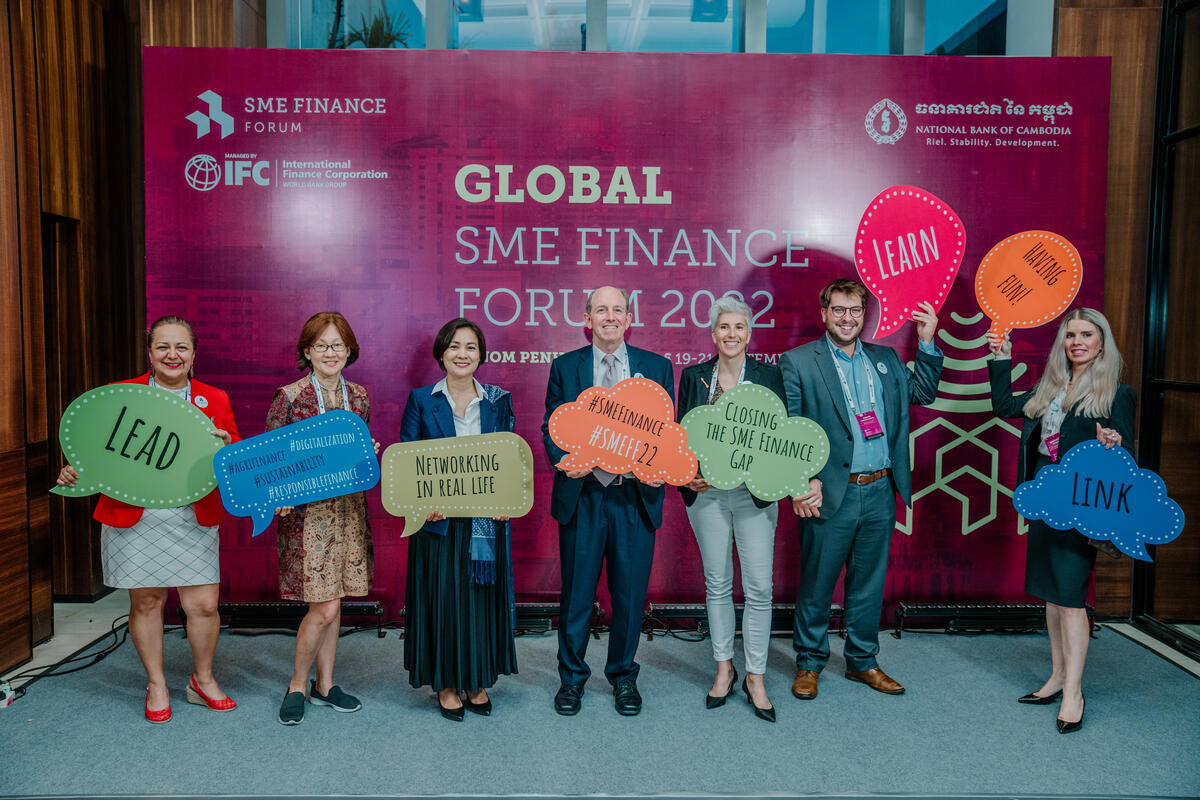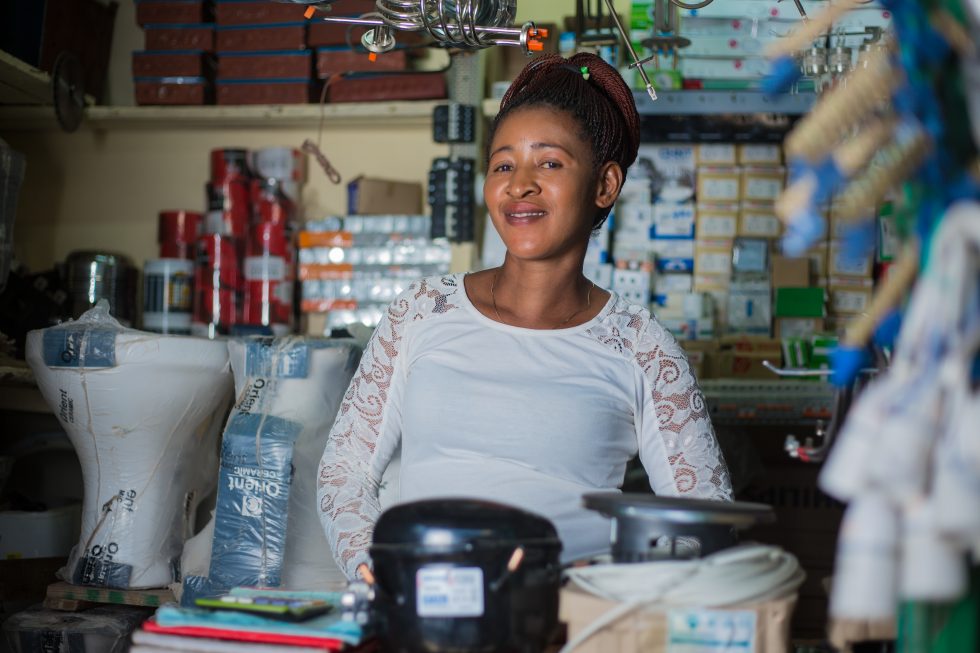Blog
Virtual Workshop: Digitalizing Supply Chain Finance Summary

The SME Finance Forum hosted this event featuring three Asian-Pacific banking associations to explore ways for digitalization to unlock the potential of supply chain finance (SCF) and bring meaningful changes in its access to and availability for SMEs. In this online session, Dr. Matthew Gamser (SME Finance Forum), and Matthew Saal (International Finance Corporation), each moderate conversations with panelists from the APEC region (India, Singapore, and China), as well as Mexico, Peru, and the United States. The event was powered by the Thai Bankers’ Association (TBA) and the Office of SMEs Promotion Thailand (OSMEP), and it was generously co-organized by the APEC Business Advisory Council (ABAC), the SME Finance Forum, the Office of SMEs Promotion Thailand (OSMEP), and the Asia-Pacific Financial Forum (APFF).
Context
The value of the global supply-chain finance (SCF) market remains significantly untapped. According to a recent McKinsey report, nearly 80 percent of eligible assets do not benefit from better working-capital financing, and the remaining one-fifth of assets are often inefficiently financed.
The global supply chain finance industry has the potential and can fulfill the promise of financing the working capital necessary to run any business. Digitalizing supply chain finance can benefit the entire supply and distribution ecosystem if appropriately done, enabling corporate buyers to secure inventory by extending payment terms and increasing certainty on forwarding orders for suppliers. Both banks and nonbank SCF providers can generate stable, short-term, lower risk recurring transaction volumes while creating an avenue for broader offerings such as foreign exchange, cash management, and capital markets products.
SCF has only partially delivered on this promise despite many emerging and promising catalysts such as digital delivery, fintech innovation, industry utilities, blockchain, and API technologies. Often it is focused on larger, well-financed multinational corporations and their first-tier suppliers only, while smaller and under-financed enterprises down the chain face barriers to accessing. Many institutions cannot offer the full range of SCF products because they have limits on exposure or risk, limited expertise in underwriting, and lack existing processes. SCF platforms' fragmentation and data sharing make the task even more difficult.
Opening Remarks
Dr. Veerapong Malai, the Director-General of the Office of SMEs Promotion Thailand (OSMEP), offered his opening remarks. He emphasized the opportunities of digital market infrastructure for MSME supply-chain finance in the Asia-Pacific region as a tool to access underserved consumers. He invited the regional experts present to discuss the best ways these technologies can expand their reach to MSMEs and commended the organizers for their commitment to the mission and efforts to organize this virtual roundtable.
Immediately following Dr. Malai, Mr. Hiroshi Nakaso, Chairman of the Daiwa Institute of Research, highlighted the challenge of underutilized data on MSMEs functioning with cash. He urged the financial sector to catalyze and accelerate the migration from cash to digital transactions and emphasized the digital market infrastructure needed for financial services to expand their services to MSMEs. He noted that digital delivery, fintech innovation, industry utilities, distributed ledger technology, and application programming interface should not be available to multinational corporations but become accessible to MSMEs. Finally, he noted the
1st Session – Digital sizing Trade and Supply Chain Finance
Dr. Matt Gamser, Chief Executive Officer, SME Finance Forum – Dr. Gamser welcomed the audience, esteemed guests, and panelists. He commenced the discussion by asking panelists to share about their company or institution and to comment on how they are contributing to the development of the digital infrastructure in their respective regions.
Alvin Ho, President, Air8 - Air8 is a global supply chain finance platform serving suppliers and buyers globally with a primary focus on the General Merchandise industry. According to Mr. Ho, the strategic goal of Air8 is to penetrate deeply into the industry value chain to extract sufficient data points from the entire process. The ultimate goal for this is to be able to construct a credit-risk modeling tool within this ecosystem.
In addition, Air8 serves both MSMEs and funders by leveraging technologies such as blockchain, AI, and machine learning to increase the points of access for MSME suppliers. Mr. Ho also explained that Air8 is committed to finding ways to promote ESG topics and green financing to exporters across the world.
Chris Hale, Founder and Chief Executive Officer, Kountable – Kountable is a global trade and technology platform, working closely with SMEs in the Original Equipment Manufacturers (OEM) value chain. Kountable has operated primarily in Africa as a destination point of goods but has purchased significant inventory out of the APEC markets. Mr. Hale explained Kountable’s value proposition as one built around underwriting the trade network to better value trade based on its participants.
Ravi Valecha, Chief Executive Officer of India Factoring and Finance Solutions Private Limited – Representing the more traditional of companies present in the panel, India Factoring and Finance Solutions is a financial services company specializing in working capital solutions through Factoring. The company is a subsidiary of FIMBank p.l.c., Malta, and registered with the central bank of India (RBI) as an NBFC – Factor.
Mr. Valecha explained that because of its subsidiary status, the firm can offer international factoring services to India. Additionally, technology reduces the risk element and India Factoring and Finance Solutions has implemented a digital ledger system that checks and validates the authenticity of invoices and ultimately secures a transaction. In the past, ingenuine invoices have been an area of concern, especially in developing and emerging markets.
Basant Kaur, General Manager, India, C2FO – C2FO is one of the world’s largest platforms for working capital. Ms. Kaur explained the mission of C2FO as “to provide convenient low-cost capital to every business in the world that needs it to grow.” Founded in 2008, C2FO has filled the gaps in traditional banking institutions by matching the accounts payable with the accounts receivables across millions of businesses to access capital at any time.
Ms. Kaur explained that the Indian government is one of the unique cases of countries that have actively invested in digital infrastructure. Digital record-keeping, digital transactions,
Hector de la Garza, Founder and General Director, E-Factor Network - Dr. Gamser invited Mr. de la Garza to elaborate on the enabling environment of connecting traders and buyers through E-Factor. Mr. De la Garza explained that there is a significant opportunity to process multi-bank, multi-currency. Furthermore, he said that E-Factor attracted the attention of multi-national corporations who were willing to back it, which proved helpful for surviving in a competitive environment of fintech. He clarified that this field is equally competitive not only for Mexican suppliers but also for suppliers overseas.
Dr. Gamser asked the panelists to share their thoughts on the contributing factors determining which countries these companies chose to trade currencies in and ad what roadblocks they faced while doing so.
Ms. Kaur explained that matching accounts receivables to accounts payables is a simple enough model that provides the opportunity for companies like C2FO to provide liquidity. Dr. Gamser followed up on his question to raise the issue of the validity of contracts between countries and what companies do to address this. Mr. Kaur clarified that if there is a digital record of the account payable and accounts receivable that the firm can match market creation between buyer and seller is possible. She explained that the Indian government has pushed to digitize invoices.
Chris Hale, Founder and Chief Executive Officer, Kountable - In his opinion, the enablers of digital platforms are the maturity of the banking sector both in terms of digitization and product offerings, as well as invoice discounting, factoring,
Dr. Matt Gamser agreed with Mr. Hale’s remarks and expressed how the challenge lies with building a broader ecosystem for MSMEs rather than simply fulfilling their financial needs. According to Dr. Gamser, an ideal ecosystem would feature a common hub of available and transparent trade data that businesses would have at their disposal while also allowing their data to be shared in a regulated and effective manner. This would ultimately create more opportunities for MSMEs and other businesses to grow and move up the value chain.
Session 2 – Digitalization and Sustainability for Distribution Chains
Moderated by Matthew Saal, the Principal Industry Specialist at International Finance Corporation (IFC)
Gaurav Chaudari, Head of Technology Collaborations (Ecosystems) at WeBank, kicked off the panel with an overview of WeBank innovative banking operation. As China’s first digital plan, WeBank became a successful global financier partially by leveraging the “ABCD Strategy.” Mr. Chaudari defined the strategy acronym as AI, Blockchain, Cloud, and Big Data. The success of WeBank can be attributed to the company’s early-on investment into these technologies, which afforded it with setting the stage for an internal ecosystem in which the aforementioned technologies are utilized seamlessly. This made WeBank a “self-reliant” company, according to Mr. Chaudari, and allowed it to experiment with various banking products and services.
In terms of sustainability, Mr. Chaudari explained that the open-source, full-stack approach of WeBank, has opened way for tracking more specific ESG related metrics. This generated talk around WeBank’s digital ecosystem from other industries in China, especially as it relates to supply-chain finance. Multilateral collaborations were essential to the success of WeBank’s open-source diverse systems.
A common-trust framework is crucial for data transmission between industries, as well as between companies and suppliers. Rob Grimberg (Founder of Capital Tool Company), Carl Wegner (Chief Executive Officer of Contour Network), and Mr. Chaudari provided their feedback and experiences on supply chain financing solutions. They unanimously supported that digitizing supply chains can prove useful for collecting sustainability data.
Overall, the panelists reiterated the importance of setting regulatory standards for secure transactions, asset-based lending, and redesigning credit structures. Mr. Saal referred to the recent World Bank World Development report, which highlighted supply chain finance as a tool for overcoming the informational disruptions and increased lending risks caused by the COVID-19 pandemic. Following the themes of the report, the panel emphasized how supply chain finance can contribute to an equitable and sustainable recovery.
Session 3 – Fireside Chat on Policy Considerations
Moderated by Dr. Matthew Gamser, Chief Executive Officer of the SME Finance Forum
Allan Lis, Fintech Infrastructure Office for the Monetary Authority of Singapore (MAS), shared his perspectives on how governments be proactive in building the digital infrastructure of an equitable financial system with a special focus on small business and cross-border trade. He explained one of the MAS’s key initiatives, titled “Foundational Digital Structure” that enable interoperable solutions and seamless digital services to innovators and the private sector overall. This structure is divided into 4 elements, which include digital identity, data exchange, payments interoperability, and authorization and consent.
Mr. Lis spoke about digital payments and emphasized the settlement component. According to his, it is one area not receiving enough attention by banks, however MAS views a great opportunity to enable greater innovation. Government regulation in digital infrastructure ultimately reduces the costs of supply chain interaction and trade and promotes a more equitable global financial system. In Mr. Lis’ words, top-down regulation is analogous to the “plumbing” structure that enables the technology industry to create a space of innovation.
An open space for innovation and technology carries with it challenges around the regulation and open access of data. When questioned about MAS’ treatment of data, Mr. Lis explained that the goal is to find the right balance between ensuring a smooth user-experience with limited data sharing restraints and avoiding a closed-loop phenomenon that counteracts the purpose of having a digital ecosystem.
Closing Remarks
Kobsak Duangdee, APFF Chair and Secretary General of the Thai Bankers’ Association (TBA) – Mr. Duangdee thanked his co-hosts and panelists for an insightful discussion and proceeded to offer his closing remarks. Mr. Duangdee emphasized the importance of developing the digital infrastructure of financial services and its ecosystem for the financial sector to be able to effectively play a custodian role. According to him, the main components for building such ecosystem include “legal foundational standards that are essential for scaling efficiency and interoperability, enabling strong regulatory framework, government support, and leadership by example”.
Mr. Duangdee reiterated APEC’s commitment to building wider regional participation in regional cross-border business, as well as the development of a digital ecosystem to support future virtual interoperability.
Event:
13 June 2021
1800-2100 Canada, Mexico and USA (Pacific Daylight Time)
2000-2300 Canada, Mexico and USA (Central Daylight Time)/Peru
2100-2400 Canada, Mexico and USA (Eastern Daylight Time)/Chile
14 June 2021
0400-0700 Russia (Moscow Standard Time)
0800-1100 Indonesia (Western Indonesian Time)/Thailand/Viet Nam
0900-1200 Brunei Darussalam/China/Hong Kong, China/Malaysia/The Philippines/Singapore/Chinese Taipei
1000-1300 Japan/Korea
1100-1400 Australia (Australian Eastern Standard Time)/Papua New Guinea
1300-1600 New Zealand
ABOUT THE ORGANIZERS:
APEC Business Advisory Council
The APEC Business Advisory Council (ABAC) was created by the APEC Economic Leaders in November 1995 to provide advice on the implementation of the Osaka Action Agenda and on other specific business sector priorities, and to respond when the various APEC fora request information about business-related issues or to provide the business perspective on specific areas of cooperation. ABAC comprises of up to three members of the private sector from each economy.
APFF Sustainable Finance Development Network
The Sustainable Finance Development Network (SFDN) was set up within the Asia-Pacific Financial Forum (APFF) as recommended by the APEC Business Advisory Council (ABAC) in 2020. It serves as an international platform for private-public sector collaboration, accelerating the convergence of sustainable finance policies among APEC economies and strengthening the region as they develop a common global sustainability framework. This is done primarily through activities supporting the APEC Finance Ministers’ Process and assisting ABAC in developing its high-level recommendations to the Finance Ministers. In 2022, SFDN is mandated to support ABAC in developing recommendations in five key areas, which include MSME transition.
The Office of SMEs Promotion, Thailand
The Office of Small and Medium Enterprises Promotion (OSMEP) is a government agency under the Office of the Prime Minister. The establishment of OSMEP was endorsed by the Small and Medium Enterprises Promotion Act, B.E. 2543 (2000) and the Small and Medium Enterprises Promotion Act (NO. 2), B.E. 2561 (2018). It is the leading organization in formulating policies and strategies on MSME promotion as well as to serve as a focal agency in coordinating the network systems of public and private sectors in order to drive MSMEs to grow with strength and sustainability.
SME Finance Forum
The SME Finance Forum, managed by the International Finance Corporation, was established by the G20 Global Partnership for Financial Inclusion (GPFI) in 2012 as a knowledge center for data, research and best practice in promoting SME finance. It works to expand access to finance for small and medium businesses. The Forum operates a global membership network of over 220 members that brings together financial institutions, technology companies, and development finance institutions to share knowledge, spur innovation, and promote the growth of SMEs.
Thai Bankers’ Association
Since its establishment in 1958, the Thai Bankers’ Association (TBA) has played an active role in representing the banking community in discussions with the Bank of Thailand, Ministry of Finance, Ministry of Commerce, and other government agencies in formulating and implementing key economic and financial policies. It collaborated with the Board of trade of Thailand and the Federation of Thai Industries in establishing the Joint Public-Private Consultative Committee, a prominent forum to discuss on-going national issues with the government, which often results in very fruitful adjustment of government policies or amendment of laws and regulations that are conducive to efficient practices in trade and investment. TBA is also a founding member of the ASEAN Bankers Association and works closely with the Foreign Banks Association in various banking issues, including improving the payment system, formulating guidelines for common practice on rule and regulation, and organizing joint charity activities.










